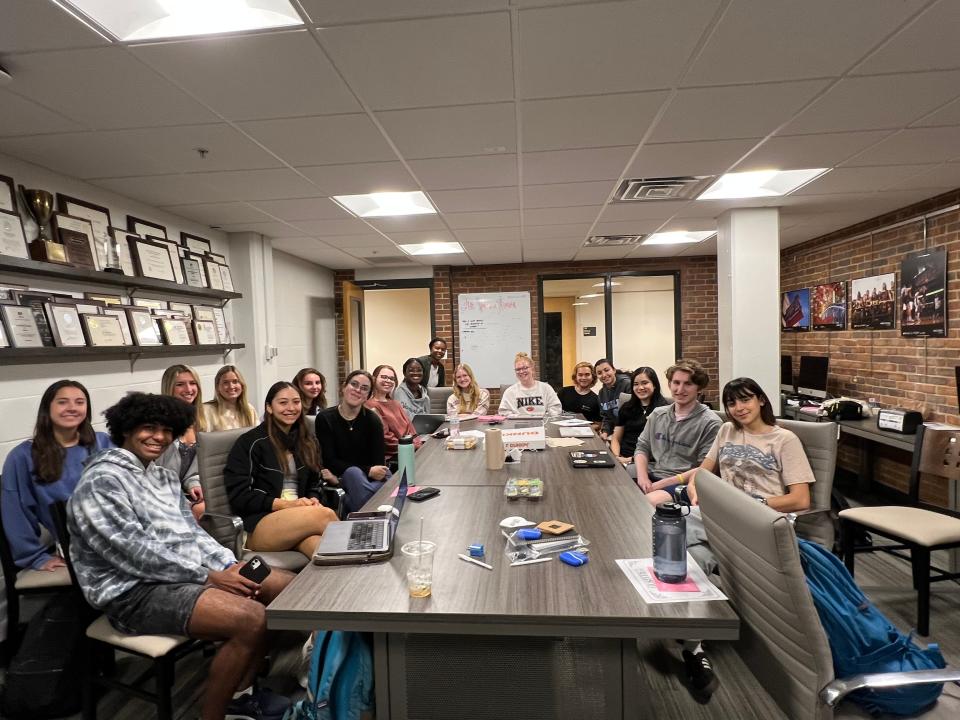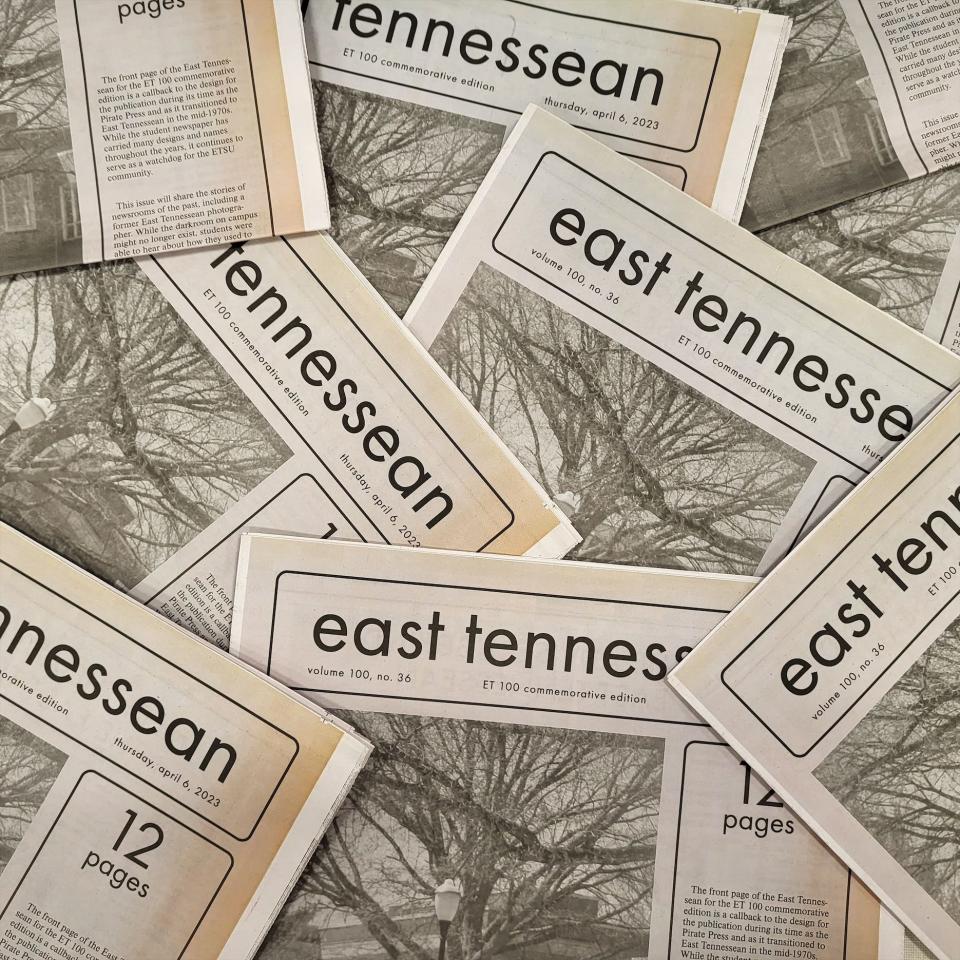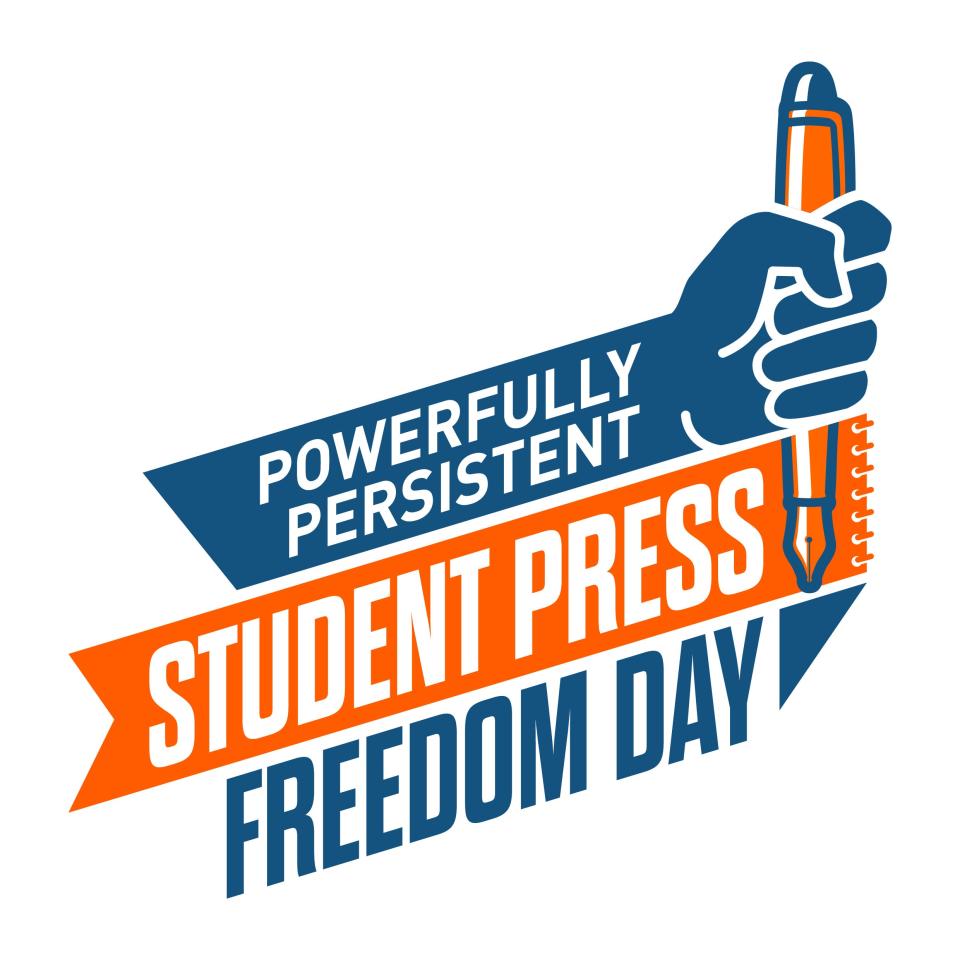Student Press Freedom Day: 5 Tennessee student editors on the role they play on campus
For the sixth year in a row, students across the U.S. will celebrate Student Press Freedom Day on Feb. 22, an event organized by the Student Press Law Center to raise awareness of the challenges faced by students exercising their First Amendment rights.
The event this year comes just two days before the 55th anniversary of impactful Supreme Court case Tinker v. Des Moines Independent Community School District, which helped solidify the free speech and expression rights of students across the nation.
In celebration of student press rights across the state, The Tennessean asked student journalists at a some of the state’s leading universities to tell us about their experiences, their challenges and their aspirations. Students from Vanderbilt University, East Tennessee State University, University of Tennessee, Knoxville, University of Memphis and Austin Peay State University answered.
Related: The Tennessean celebrates inaugural class of its Journalism Academy for standout students
How do you see the role of student journalism on your campus?
Jorie Fawcett, editor-in-chief of The Vanderbilt Hustler at Vanderbilt University: The role of student journalism is to fill the gaps missed by mainstream media. …Vanderbilt doesn't have a journalism department, so all of our reporters have come together, as engineering, science, education majors, under a united love and passion for journalism and storytelling. This gives us a unique perspective to break stories and uncover news that the university or other outlets might miss out on.

Connor Lute, executive editor of the East Tennessean at East Tennessee State University: The East Tennessean serves as ETSU's watchdog, so I believe that we often represent students that are going unnoticed around campus. It is important to highlight their stories and accomplishments as we all progress through this time in our lives.
Abby Ann Ramsey, editor-in-chief of The Daily Beacon at University Tennessee, Knoxville: Student newsrooms are instrumental in not only holding people in power on campus accountable but also in telling the stories of campus that showcase the power of human connection. As student journalists, we shine a light on truth, prioritize transparency, uplift powerful stories and highlight resources in order to create a more positive culture on campus.
Stevie Paige, editor-in-chief of the Daily Helmsman at the University of Memphis: On the University of Memphis campus … we seek to champion our students and faculty while also incorporating the grit and grind spirit that our city is known for. The university's motto is "driven by doing," and we try to reflect that in our reporting. This includes showcasing the university's stand-out student musicians and athletes, faculty members, and scholastics. In addition, regularly, we conduct crowdsourcing stories, through which we try to get a general consensus from students on particular topics or campus issues. As a student newspaper, it's imperative to try and understand the full scope of the concerns and challenges faced by students.
Ricky Birchfield, editor-in-chief of The All State at Austin Peay State University: Student journalism is an important part of campus because we provide such a unique view. Public relations and student journalism are going to cover things differently. We have an incentive to want the best for our school. … We are a trustworthy place for students and staff to have their voices heard just as much as we're a place to get real journalistic experience before entering the workforce.
What is the biggest challenge you face on campus as a student journalist?
Paige: To be fair, I've only been the editor-in-chief of The Daily Helmsman for a little over a month, so I've yet to face any colossal challenges. … However, over the years, the Daily Helmsman has had many run-ins with administrators when they didn't respect student journalistic freedom. Once, in 2012, after being defunded by the Student Activity Fee Allocation Committee (SAFAC) over ‘a dislike with what was being covered and how it was being covered’ by the then SGA President and campus administrators, the Helmsman hired an attorney and threatened legal action. (The paper) won.
Birchfield: As a student journalist, the biggest challenges we face involve resource management. We don't have access to the best equipment, but we manage fine. The most challenging resource to manage is the human one, our connections to the important students, faculty, and staff that are the newsmakers. We struggle to get comments from relevant people and are occasionally asked by interviewees if they can do prior review. At best, we might email a list of questions and receive selective answers.
Ramsey: One of the biggest challenges our student journalists face on campus is being taken seriously as a news source on campus. Because we are students, the value of our work is sometimes underestimated.
Fawcett: Personally, the biggest challenge I face is managing a large staff, all of which have different needs and opinions. Oftentimes my job feels like I'm fighting fires rather than preventing them. But more broadly, my biggest challenge is building trust with the college community. We are at a time in society where the media is untrusted and misinformation spreads rapidly. We are more cautious than ever, in a time more turbulent than ever. Student journalists nationwide stand at an important crossroads of information dissemination and community impact.
Lute: The biggest challenge I face on campus is trying to remain relevant amongst my peers. When we create a social media post, it typically garners between 50-75 likes. It is only when we post something that is considered hard-hitting news that we receive anywhere from 350-1,000 likes. Though we print over 2,500 copies of each edition, students rarely know what the publication is.

What is the biggest threat to student journalism, in your view?
Fawcett: The biggest threat we face is fear and being shut out. Students are fearful to comment or speak out on issues because of fear of retribution. Vanderbilt is such a career and success focused university, that students are constantly thinking of their future careers, which is great. However, reporters often feel stuck when seeking comments for topics or articles.
Birchfield: In my view, crackdowns on free speech in academia are a big threat to student journalism. Students and faculty voicing their opinions continue to be handwaved away by some, or even blacklisted for expressing their views. How can I send a reporter to cover a contentious topic in good faith if it threatens them? We here at The All State are lucky to have faculty advisors who fight for us and our right to publish what we want.

Paige: I believe the biggest threat to student journalism is the culture of indolence among college-aged people. While I know this may be a controversial answer, I've witnessed numerous aspiring student journalists seek my guidance, only to then coast through college and not take advantage of opportunities like working for the student newspaper and/or applying for internships…Now that AI services like ChatGPT, the temptation to do less work is even greater. It's all at your fingertips. There's no longer a need to challenge your brain to craft words and construct stories. It takes all the beauty and imagination out of storytelling.
Ramsey: One of the biggest threats to student journalism nationwide is interference with editorial independence. So many student newsrooms face pressure from their universities to steer away from negative coverage, hindering student journalists’ ability to tell the full truth. We’re grateful to be an editorially independent paper, but many student newsrooms are losing that.
Lute: I think the biggest threat to student journalism is remaining relevant in future generations. As I mentioned before, the publication is not widely recognized across campus and only those who are interested in media know who we are. Additionally, as the political sphere continues to divide those across the nation, student journalists are often attacked for representing ‘fake news.’ I think the idea of fake news being in student journalism resonates more in the south compared to the rest of the nation.
What is your biggest concern going into journalism after you graduate?
Paige: As a journalism major with a concentration in print, my biggest concern after I graduate is that in this ever-changing digital world, my writing skills won't be enough. My true passion is feature writing. However, the way the public consumes media has vastly changed. Statistically, readers scan a headline and move on. The future of long-form, narrative writing is narrowing. This saddens and discourages me.
Fawcett: The unique thing about Vanderbilt's newspaper is none of our reporters are studying journalism, mostly because Vanderbilt does not offer a true journalism degree. This can be both a positive and a negative. The positive being, The Hustler has reporters from all walks of life that have come together under the united passion for reporting, journalism, and story-telling. The negative being, many people feel limited by their degrees (or lack thereof for journalism) and feel like they cannot be hired without a journalism degree. Additionally, it is clear there is a distrust of the media that has ignited fear in many of our reporters.
Birchfield: My biggest concern going into journalism is the shifting landscape. I worry that my experience will be unlike a lot of the faculty, though my professors all have comfortable experience working online. I wonder if it will be a viable career by the time I've been doing it for ten years or so. (But) I believe that some form of journalism will persist as long as free speech does.
Ramsey: Almost all student journalists are aware that they’ve decided to go into a field with constant layoffs, increased pressure and competition from artificial intelligence. One of my biggest concerns heading into the professional journalism industry is the decline of media literacy we’re seeing. I know how to report and tell stories, but with readers not fully understanding the role of journalism and the best ways to consume media, I’m concerned about challenges communicating with audiences once I enter the professional world.
Lute: I do not plan on entering the journalism field after graduation; however, as I see the field continue to evolve I wonder how it will continue to stay alive.
The USA Today Network - Tennessee's coverage of First Amendment issues is funded through a collaboration between the Freedom Forum and Journalism Funding Partners.
Have a story to tell? Reach Angele Latham by email at alatham@gannett.com, by phone at 931-623-9485, or follow her on Twitter at @angele_latham
This article originally appeared on Nashville Tennessean: Student Press Freedom Day: Tennessee student editors on their role

